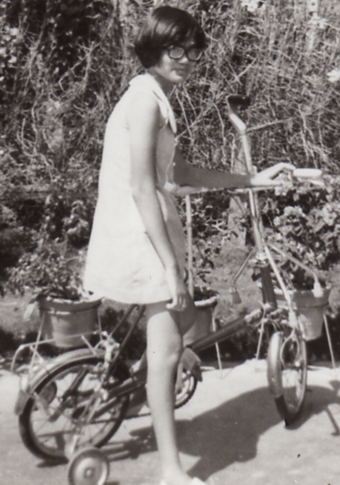this is the start of blogs in preparation for a chapter in a journal which asked me to write ” on your work in relation to your personal activism and advocacy with the onset of austerity, and the intersectional tensions as a disabled women involved with a diverse set of communities. In particular we thought you may want to contribute a chapter about your personal reflections, that rigorously capture the new and emerging issues for disability activism” …..
So I am taking the opportunity to write a few notes on my journey.

When I was a teenager, I had some Swiss penpals who came to visit me in Malaysia. I was very excited, these were my first contacts with white people (apart from religious clergy associated with my school). They came for two weeks bearing gifts of Swiss pen knives and an embroidered blouse. In these days of social media, it is difficult to imagine a world where we wait for letters to arrive in the post, where handwriting was still important.
I took them to a few places but in Kuala Lumpur, they insisted on visiting a palm reader in a fancy hotel. I refused to pay the fee but he took my palm and was very interested – he said that I would travel the world and live in foreign lands. It was clear to the teenager in me that this was a real scam. I thought how could that be when I was disabled and not able to hobble far. I did not really bother to keep in touch with those penpals after a while, I did not expect to reciprocate the visit to Swizerland.
I went to a mainstream school, there were no special schools in Malaysia and I never met another disabled child when I was growing up. My schoolmates accepted me and they included me when they could but they never asked questions when I was excluded either. One of my classmates was very kind to me and acted as a sort of helper, she got my bag and bought me lunch from the canteen. We went to my house together because she had to wait for the bus, I m not clear why. I was self absorbed like any other teenager. I was not a particularly nice child, I was spoilt by my wonderful parents- even as I felt like an outsider oftentimes when I could not join and perform in the class band, choir and be on stage or do sport, I raged against what seemed like an injustice to me and only me.

My parents were reasonably well off and it was not a big place, my hometown. The town people knew me as I used to cycle around on a girl’s Ragleigh bike with stabilisers. That bike gave me independence – I valued the mobility independence far more than my non disabled friends who could walk. That bicycle was a precursor of the wheelchair I got from the NHS when I started university as an undergrad at Kent University in the UK.
My bike made it possible to visit my friends and be part of their families – Malaysia is multicultural. I celebrated all the festivals and it helped me understand cultural differences by being embedded in it. The muzzein call to prayer in the morning, church bells on Sundays, firecrackers for Chinese New Year, and all types of processions ( not found in other parts of the world where I have lived) like for Thaipusam.
This part of my youth is so important in the development and passion for intersectionality and the importance of understanding that no oppression is in isolation of the politics and the context of our community and society. I say this given the context of the Malaysian melange of four different ethnicities: Malay, Chinese, Indian and other.1 It is not a question of race as in white against people of colour, it is the post colonial context and who held the political power at the time. We had also to look at the make up and influence of religion as well.
1 ref The Population of Malaysia 1974 http://www.cicred.org/Eng/Publications/pdf/c-c34.pdf




